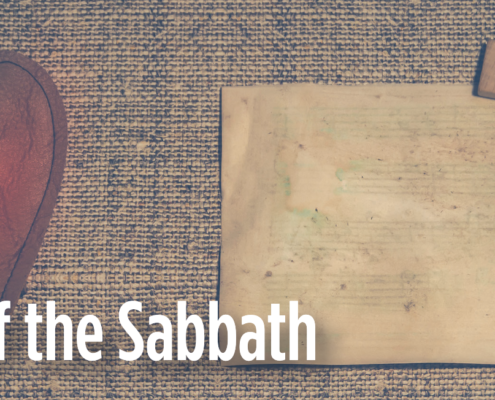Updated: Oct 4, 2019
The Open-Minded People of Berea
The apostle Paul reasoned with philosophers in Athens, was mistaken for a god in Lystra, sang in the Philippi jail, and survived shipwreck. Everywhere he went he preached “Christ crucified… the power of God and the wisdom of God.” 1 Corinthians 2:2
Probably one of Paul’s most gratifying experiences was in Berea. In this Roman city at the foot of the Olympian mountains, Paul found people who “were more open-minded than those in Thessalonica, and they listened eagerly to Paul’s message. They searched the Scriptures day after day to see if Paul and Silas were teaching the truth.” Acts 17:11 NLT
Finally! People open to the truth! Not only did they listen, they tested Paul’s teachings against the Scriptures, knowing that any new teaching must line up with what God has already revealed in His Word. It must have brought joy to Paul’s heart to see them earnestly searching the Holy Writings for truth.
Test All Things

Study the Bible for yourself to discover its true meaning.
In Revelation 2:2, Jesus commends the church of Ephesus for testing those who say they are apostles. In 1 Thessalonians 5:21, Paul admonishes us to “test all thing; hold fast what is good.”
“We should not take the testimony of any man as to what the Scriptures teach, but should study the words of God for ourselves…The mind will enlarge if it is employed in tracing out the relation of the subjects of the Bible, comparing scripture with scripture and spiritual things with spiritual.” Ellen White, Steps to Christ, p. 89.
Do you know how to test what you hear against the Bible?
Many of us know we should dig deeper in our Bible study but aren’t sure how to do it. If that’s you, keep reading. We’re going to show you how to dig deeper and give you a number of tools to help you search Scriptures like the Bereans.
Methods of Bible Study
God designed the Bible to be its own best interpreter when understood through the guidance of the Holy Spirit. Difficult passages should be unpacked by researching the root meanings of the words and comparing the passage with other relevant scriptures. Commentaries add additional insights.
“The Bible is its own expositor. Scripture is to be compared with scripture. The student should learn to view the word as a whole, and to see the relation of its parts.” Ellen White, Education, p. 190.

The Bible is its own best expositor. Examine the context and compare scripture with scripture to find the true meaning of texts.
Verse by Verse: This is one of the simplest and most helpful ways of studying the Bible. Read the verse you are studying several (try 7) times. Underline words or thoughts that stand out. Read the chapter the verse is in. Look up the meanings of the words in a Bible dictionary or interlinear Bible (more on these tools below). Use a concordance to look up cross references. Read the verse in multiple translations. God will give you new insights into the meaning of verse as you study. Write down these insights and a prayer of response to God.
Chapter by Chapter: This is similar to verse by verse study but allows for a broader view of Scripture. Follow the same outline as above, but try reading the chapters around it, or even the whole book to understand the context.

Concordances give all the places where a word like “satisfy” can be found in the Bible.
Topical or Word Study: Use a concordance to find all the Bible verses that address the concept/word you are studying. Compare the way the word/concept is used in various passages. Look up the word in the original language to understand its full meaning. You don’t have to be a Greek or Hebrew scholar to do this as there are many tools available that give you the translations of the words, as well as tell you the other places where the words are used. Write down your findings and compare them with the findings of other commentators. Be sure to ask God how to apply the things you are learning and respond in prayerful worship.
Tools for Bible Study
All the tools you need for deeper Bible study are available online and in print. Many are free. You won’t use all of these tools every day (unless you have hours for Bible study). Simply use the ones that are helpful for your current study. Just keep reading God’s Word every day, listening for His Voice and responding to Him in love.
- Bible Dictionary: Explains the meanings of Bible topics and words.
- Concordance: Alphabetical listing of words in Bible and where they are found.
- Lexicon: Definitions for Greek and Hebrew words used in the Bible.
- Interlinear Bible: Parallel original language texts of the Bible combined with English for comparison study. Online sites make it much less intimidating to do this kind of Bible study.
- Cross References: Show where to find related verses. Often in the margins of Bibles.
- Commentaries: Offer researched analysis and explanations of Biblical passages. Do your own Bible study first, then turn to these for further insight.

A library like this is helpful for digging deeper in God’s Word, but is not necessary if you have access to online websites and Bible software.
Print Resources for Bible Study
A good study Bible with a built-in concordance, cross-references, and commentary is a great starting point. The Andrews Study Bible is an excellent choice, but there are many others that are also good.
If you prefer not to use the internet for your Biblical research, you can purchase books with many of the above tools in them. An interlinear bible or concordance are good places to start.
Online Tools for Deeper Study
For inexpensive, easy to use tools, we recommend using a website or app designed for Bible study. Most provide all of the above tools in one place, though some provide more than others. This allows you to choose a verse or passage to study and then explore the original languages and their meanings, cross reference to similar verses, and read commentaries all in one place. These are some we have used. Choose the one that you like best and use it:
Websites:
- Bible Study Tools is a simple website offering some of the above tools. Less full-featured than many resources.
- Bible Gateway is excellent for looking up parallel versions of the Bible. Paying for an upgraded version allows more in-depth study.
- Bible Hub offers all of the above tools in an easy to use format. This site makes it easy to look up parallel versions, meanings of Greek and Hebrew words and commentaries.
- Blue Letter Bible is a full-featured site that offers all the above tools. There are a number of short video clips available on the site that explain how to use the tools on the site. Free app versions available. This site and app offers the most tools available for free.

Websites like Bible Gateway offer Free Bible study tools.
Bible Software:
- E-Sword offers free Bible study software for use on PC or Macs. Take notes within the software on your studies. Free app versions also.
- Accordance offers Bible study software for purchase. Prices range from free to $350 for versions that include more reference works. It is has a clean interface and is intuitive to use. Free app available, but does not offer many resources.
- Logos offers the most full-featured Bible study software available for purchase. There are versions of the software available for many denominations which include their denominational reference works. Prices range from $0 – $10,799 depending on how many resources are included.
- Olive Tree offers free, easy to use Bible software. Adding additional resources to your library costs money. App versions available.
Bible Commentaries:
- Seventh-day Adventist Bible Commentaries provide solid Biblical scholarship on the 66 books of the Bible. Ellen White’s other materials are also available here. Look under the Books section to find the Bible commentaries.
- Biblical Research Institute of the General Conference of Seventh-day Adventists provides theological research and dialogue. Their in-depth materials provide thoughtful Biblical insight.
- Adventist Theological Society provides Biblical scholarship in a clear, easy to understand format. Their research articles are available on the website. They also offer excellent educational videos on the books and topics of the Bible. These videos may be viewed at Adventist Theological Academy.
Richly Repaid
We are richly blessed to have so many resources for Bible study at our fingertips. Yet we so often let our Bibles to gather dust. Let’s determine today to do the earnest study needed to test what we hear and learn for ourselves what the scriptures say.
“We cannot obtain wisdom without earnest attention and prayerful study. Some portions of Scripture are indeed too plain to be misunderstood, but there are others whose meaning does not lie on the surface to be seen at a glance. Scripture must be compared with scripture. There must be careful research and prayerful reflection. And such study will be richly repaid. He who perseveringly searches the word of God as for hid treasure will find truths of the greatest value, which are concealed from the view of the careless seeker. The words of inspiration, pondered in the heart, will be as streams flowing from the fountain of life.” Ellen White, Steps to Christ, p. 90
Dig Deeper
Use one of the Bible websites or softwares to explore the purpose of Scripture as described in 2 Timothy 3:16-17, “All scripture is given by inspiration of God, and is profitable for doctrine, for reproof, for correction, for instruction in righteousness: That the man of God may be perfect, thoroughly furnished to all good works.” What are the meanings of the words and what insights do you gain from reading the cross references for the verse?
Note: This devotional is part of a 10 part series on 5 Keys to Enjoying God’s Word. If you have not already, please take time to read the devotionals in the series. How to Turn on God’s Alarm Clock, Finding a Quiet Place Alone with God, Faith – Essential Preparation for Bible Study, A Willing Heart for Bible Study, How to Read the Bible, and Tools for Bible Study, Conversation with God, How to be Transformed by God’s Word, God’s Seven Tools for Remembering, Why God Wants You to Share What You Learn. Also, please see the related video devotionals with Pastor McKenzie.












Leave a Reply
Want to join the discussion?Feel free to contribute!